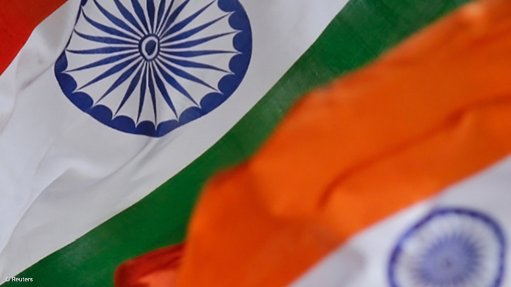
Photo by: Reuters
KOLKATA (miningweekly.com) - India’s Steel Ministry is seeking to hive off the coking coal assets of major Coal India Limited (CIL) into a standalone government company - a proposal with the potential to trigger off an inter-Ministerial tussle.
In a communication to the Union Cabinet of Ministers, the Steel Ministry said that given the growing dependency of the domestic steel companies on imported coking coal, only an independent company could exclusively focus on coking coal mining and increase domestic availability within the shortest period.
In effect, the Steel Ministry was gunning for the demerger of Bharat Coking Coal Limited (BCCL) - a wholly owned subsidiary of CIL - which controls all coking coal assets in the country and is the sole domestic source of the critical raw material for local steel producers.
The latest communication from the Steel Ministry is the second within the last year seeking the hiving off of coal assets from CIL. Last year, the Steel Ministry not only proposed hiving off the coal assets but auctioning them to steel companies, the actual end-users of the raw material.
The Coal Ministry opposed the move, contending that most coking coal assets were underground mines and that no steel company or any Indian miner had the necessary technology or experience of operating complex underground mines.
However, in the latest move, the Steel Ministry was silent on auctioning coking coal assets to steel producers and instead sought the creation of an independent government-owned company, which would exclusively operate and produce coking coal.
The proposal would once again put the Steel and Coal Ministries on a collision course.
“I fail to understand the rationale behind the proposal and how do the steel firms benefit from the demerger? They may produce steel but have little technological wherewithal to operate mines, especially underground ones, most of which are with BCCL,” CIL chairperson S Narsing Rao was quoted as saying in the local media.
“Steel firms would benefit themselves a lot by developing coal washeries in the country rather than spending big money importing coking coal,” he added.
India, the third largest importer of coking coal in the world, shipped in about 30-million tonnes last year with the Steel Ministry projecting domestic demand to rise to 94-million tonnes by 2017 and 200-million tonnes by 2026.
BCCL for its part was implementing a plan to increase coking coal production from 30-million tonnes a year to 40-million tonnes a year by 2017 and further to 50-million tonnes a year by 2020.
Currently the CIL subsidiary operated 81 coal mines, including 40 underground, 18 opencast and 23 mixed mines in some of the most geologically difficult reserves in the eastern parts of the country.